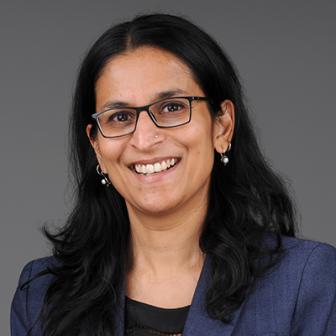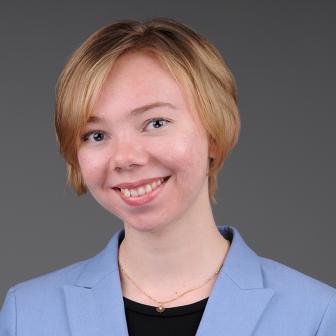Water
Human activity—from pollutants to climate change—is threatening the health of our planet's precious freshwater resources.
That's where we come in.
Just as our fresh water flows across borders, our work stretches across nation and sectors.
IISD can influence how we manage fresh water like no other think tank on earth, because we create scientific understanding of fresh water at our very own freshwater science facility, which then informs the policy recommendations developed by our team of policy analysts.
In other words, we truly bridge science and policy.
First the science.
IISD Experimental Lakes Area is the world’s freshwater laboratory.
A series of 58 lakes and their watersheds in northwestern Ontario, Canada, IISD-ELA is the only place in the world where scientists can experiment on and manipulate real lakes to build a more accurate and complete picture of what human activity is doing to freshwater lakes. The findings from its over 50 years of ground-breaking research have rewritten environmental policy around the world—from mitigating algal blooms to reducing how much mercury gets into our waterways—and aim to keep fresh water clean around the world for generations to come.
Then comes the policy.
We then take those scientific findings, and develop policy and programming solutions for governments, civil society, and industry that protect and enhance the natural environment, keep our fresh water clean, while also improving socioeconomic well-being.
We conduct economic analyses and hydrologic assessments so that governments best understand all the options before making final decisions. And we support the management of watersheds across national boundaries, bringing all the relevant sectors and stakeholders to the table.
IISD Experimental Lakes Area
We are the world’s freshwater laboratory—the only place in the world where scientists can manipulate real lakes to understand what human activity does to fresh water.

Can Pollution be a Tool for Environmental Protection? Pauline Gerrard does TedX Winnipeg
Should we be polluting the environment more — to understand it better and, ultimately, pollute it less? IISD-ELA's fearless leader, Pauline Gerrard, takes to the TedX Winnipeg stage to make the case.

This Is What Climate Change is Doing to our Fresh Water
Smaller fish. Darker lakes. Warmer air. We explore why these changes matter, and how we should go about tackling them.

The Water Brothers explore why scientists in Canada are filling a lake with plastics.
We invited the Water Brothers over to the lakes to explore why we are adding plastics to our lakes—all in the name of science.

Let’s Talk About Natural Infrastructure…
Allow us to take you on a whirlwind tour of Pelly’s Lake in southern Manitoba, Canada, where the marvels of natural infrastructure are already being felt.

Speaking Each Other’s Language
When it comes to communicating the research findings of the world's freshwater laboratory, we need to speak to communities in their own languages. Literally.
Our work in the news
Why Scientists Are Dumping Microplastics into Ontario's Experimental Lakes Area - Global National
"Melissa Ridgen visits the region to learn about a new project that's hoping to shed light on the effects of microplastics on ecosystems."
Microplastics levels high in Toronto-caught fish - The Globe and Mail
"Fillets from fish caught along Toronto’s waterfront have up to 12 times more microplastics per serving than some common store-bought alternatives, newly published research suggests."
The Dangers of Cleaning Products We Don't Discuss - Newsweek
"While it is pleasing to see the culture of self-care taken so seriously, most people don't consider another angle to this phenomenon, and it is one that you might not expect."
90% of Great Lakes water samples have unsafe microplastic levels – report - The Guardian
"About 90% of water samples taken over the last 10 years from the Great Lakes contain microplastic levels that are unsafe for wildlife, a new peer-reviewed paper from the University of Toronto finds."
Experts

Pauline Gerrard
Interim Executive Director, IISD-ELA

Dimple Roy
Director, Water Management

Matthew McCandless
Interim VP Operations and Business Transformation

Vince Palace
Head Research Scientist, IISD-ELA

Michael Paterson
Senior Research Scientist, IISD-ELA

Scott Higgins
Senior Research Scientist, IISD-ELA

Aidan Guttormson
Field Technician, IISD-ELA

Aliana Fristensky
Policy Advisor

Andrew (AJ) Chapelsky
Fish Research Technician, IISD-ELA

Ashley Rawluk
Policy Advisor

Blake Cooney
Chemist I, IISD-ELA

Chris Hay
Scientific Data Officer, IISD-ELA

Desiree Langenfeld
Biologist, IISD-ELA

Emily Kroft
Water Policy and Youth Engagement Officer, IISD-ELA

Jose Luis Rodriguez Gil
Research Scientist, IISD-ELA

Josée Méthot
Senior Policy Specialist, Water

Ken Sandilands
Biologist - Field Coordinator, IISD-ELA

Kevin Obiero
IISD-ELA Board Member

Lauren Hayhurst
Fisheries Research Biologist II, IISD-ELA

Lauren Timlick
Biologist II - Ecotoxicology, IISD-ELA

Lee Hrenchuk
Senior Biologist, IISD-ELA

Lisa Peters
Research Associate, IISD-ELA

Madeline Stanley
Remediation Ecology Scientist

Marina Puzyreva
Senior Policy Advisor

Michael Rennie
Research Fellow, IISD-ELA

Morgan Anderson
Field Sampling Technician/Senior Education and Relations Officer, IISD-ELA

Patrique Bulloch
Food Web Biologist, IISD-ELA

Paul Fafard
Field Sampling Technician II, IISD-ELA

Richard Grosshans
Lead II, Bioremediation

Sonya Havens
Research Chemist, IISD-ELA

Stanley Chasia
Policy Advisor, NBS Biophysical Monitoring

Ted Lawrence
Executive Director, IISD-ACARE

Thomas Saleh
Policy Advisor, Data and Technology; IISD-ELA
Latest
You might also be interested in

Technology and Innovation
When it comes to achieving a sustainable future for all, we cannot merely rely on tried-and-tested formulas. We need to think outside the box and get innovative.

Sustainable Development Goals
This global agenda aims to end poverty, protect the planet, and ensure all people enjoy peace and prosperity by 2030.

Infrastructure
Infrastructure is the backbone of sustainable development and a powerful driver of economic activity.
